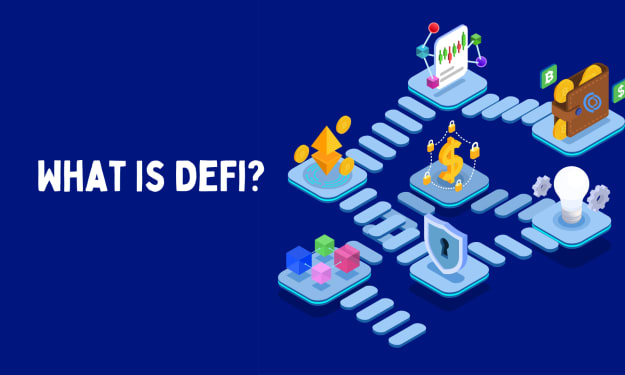Top 9 Blockchain Applications in Education
Blockchain is one the fastest-growing technologies of our modern industry

Blockchain is one the fastest-growing technologies of our modern industry. Blockchain is the technology that underpins cryptocurrencies. Today, its applications go beyond finance and banking. This blog will discuss the importance of blockchain applications for the education sector.
Before we get into the implementation, however, let's first define some terms.
What's Blockchain all about?
Blockchain is a distributed ledger or database that contains a "chain" of blocks to store information. Data can relate to transactions, date, time, participant details and so forth.
Although electronic databases have been around for a while, blockchains have revolutionized data storage and management. They allow secure access to all parties involved. Traditional records, which are centralised, are more difficult to protect from theft and loss because all information is at one place. A distributed ledger, on the other hand keeps original and verified copies of all files in multiple locations. This makes data sharing and maintenance easier and more democratic.
Blockchains are classified into the following categories:
Public: Anyone can join this network, which is completely open to the public.
Permissioned: These blockchain networks can only be joined by invited and verified participants such as members or organizations.
Private: This type is very similar to a permissioned blockchain, but it is managed and owned by one organisation.
Another important part of the blockchain vocabulary is "Smart contract". It's a computer program that runs on blockchain and enforces the negotiation and execution of the contract. It includes the terms of the agreement between buyers and sellers. Educational institutions can now execute such contracts thanks to technological advances.
Students, teachers, administrators and university officials can now enter into digital agreements for various purposes. These include loan payments and assignment submissions. This section explains more about these blockchain applications.
The Importance and Usefulness of Blockchain
The potential for blockchain to be used as a data storage platform can have immense benefits for healthcare and manufacturing organizations. Gartner's 2019 CIO Survey found that only 2% of higher education institutions have already implemented blockchain, while 18% plan to do so in the next 24 hours.
This is a testament to the many benefits that blockchain can bring to the table.
Transparency
Security
Lower costs
Traceability;
Efficiency and speed.
Blockchain solutions can be adopted by schools, universities, startups, and non-profits to improve student data management efficiency and engage students. Blockchain also allows employers and other stakeholders to evaluate the validity of student skills. Let's get into the details.
Education Blockchain Applications
1. Record keeping
The administration department of institutions can manage student records with no hassles using blockchain. All credentials and certificates are stored on the distributed ledger so there is no need to have intermediaries verify academic papers, degrees, certificates, etc.
2. Courses and certificates
The most requested student record in K-12 and higher education is certification of course content.
These transcripts are crucial in determining if a student should transfer from one academic level or another. Transcripts can also be used to show students their grades in different subjects. To ensure accuracy, records in traditional education systems must be stamped and signed manually multiple times. Blockchain applications remove the need to perform such labor-intensive and time-consuming processes.
With just a few clicks, you can get the entire, verified documentation of academic achievements and courses completed.
3. Accreditation
The blockchain can also save diplomas and degrees, just like course content and grades. Employing companies do not need to have a certified copy stamped and stamped by the university. They can instead access a digital copy that has been verified using a link.
Blockchain not only makes it easier to verify qualifications, but also helps prevent fake degrees being submitted.
The market has already seen blockchain-stored diplomas, with institutions such as MIT leading the way in issuing virtual academic credentials back in 2017.
Accreditation is another use case. Blockchain applications can be used by the concerned authorities to verify the quality education provided by a learning institution.
4. Fraud Prevention
Imagine a candidate applying for a job using fake academic papers. The interviewer then hires him based upon his qualifications. The organisation's performance will suffer if the candidate is not skilled for the job. It is possible to avoid such situations with blockchain.
Hacking is another risk to data management. Hackers could find vulnerabilities in education systems and manipulate or delete user data. However, a blockchain is used to store all student information. This allows for no modification without the permission of the institution.
5. Skill badges
A person's resume contains more information than just their work experience. It also includes technical knowledge, language skills and co-curricular activities. Although these details can be difficult to verify, third-party experts can help validate the skills of a candidate by issuing a digital certificate or badge.
For easy access, digital skill badges can stored on a blockchain. Open Badge Passport, a portable and shareable app, is an excellent example. This service is used by schools, vocational organisations, education firms, and associations to distribute micro-credentials digitally.
6. Decentralised Online Learning
Many learning institutions have very specific specifications for their study programs, which can lead to inconsistent course content. Students are often passive recipients of recorded lectures and have little control over what they learn.
Blockchain technology will open up new opportunities for data exchange and interaction between students and teachers.
7. Plagiarism Check
Students often present someone else's work as theirs in academia. When a student is submitting a final dissertation or research proposal, it may be found that the work has been copied from the internet. What is the consequence? The institute may revoke certificates or suspend the individual.
Digital content creators can limit the dissemination of copyright materials with blockchain technology. The network can only be accessed by authorized users. Academic information is protected with advanced encryption. Owners can track, access, verify, and allow the use of their content in a secure way.
8. Better Online Platforms
Blockchain enthusiasts are most interested in developing online learning platforms. This is a popular project for those who want to change the education sector.
Here's how it would work:
Blockchain applications are used by schools to connect students with teachers.
You can share study materials online.
For doubt resolution and feedback from standby tutors, users can buy internal tokens.
To facilitate self-paced learning, education materials can be downloaded.
Students can earn more tokens by interacting with the content and watching tutorials.
Blockchain makes education easy, quick, and engaging for everyone involved.
9. Newmarket for Digital Assets
Students, parents, banks and donors can all engage in monetary transactions with study institutions. These transactions include processing payments, charging fees, and granting scholarships.
This process can be made easier by creating custom Blockchain protocols. King's College, New York City demonstrated the same in 2014. It replaced credit card transactions by bitcoin payments to accept student fees. We may soon see more universities accepting and disbursing cryptocurrencies.
It is likely that we will see new digital assets created and traded on crypto exchanges like Kraken. You can even use cryptocurrencies to purchase goods and services in the academic community. You can imagine custom tokens being used at cafeterias and tuition centres.
We have provided an overview of emerging blockchain applications in education. These trends offer relevant opportunities for professionals and fresh graduates.





Comments
There are no comments for this story
Be the first to respond and start the conversation.